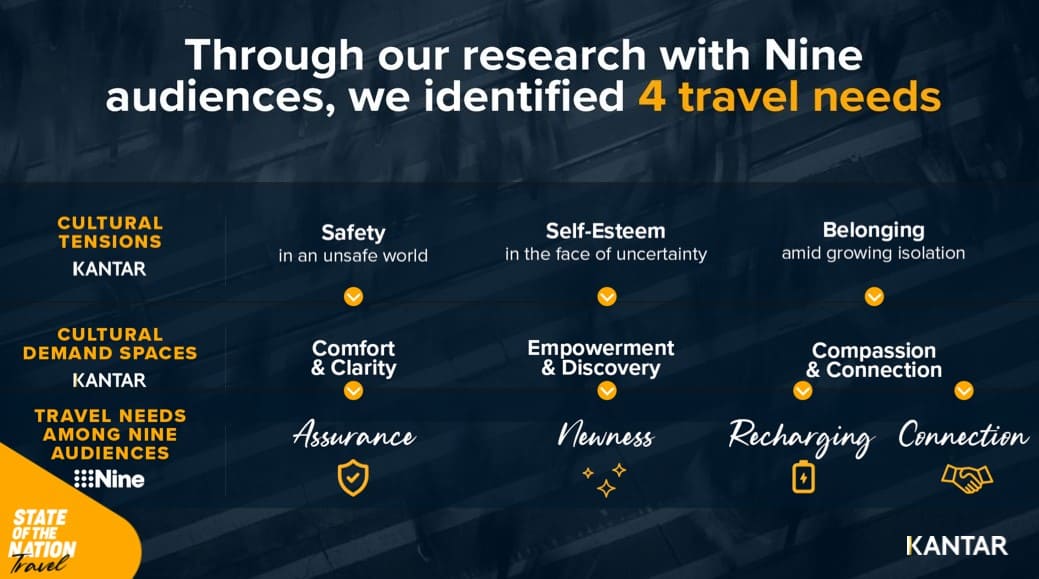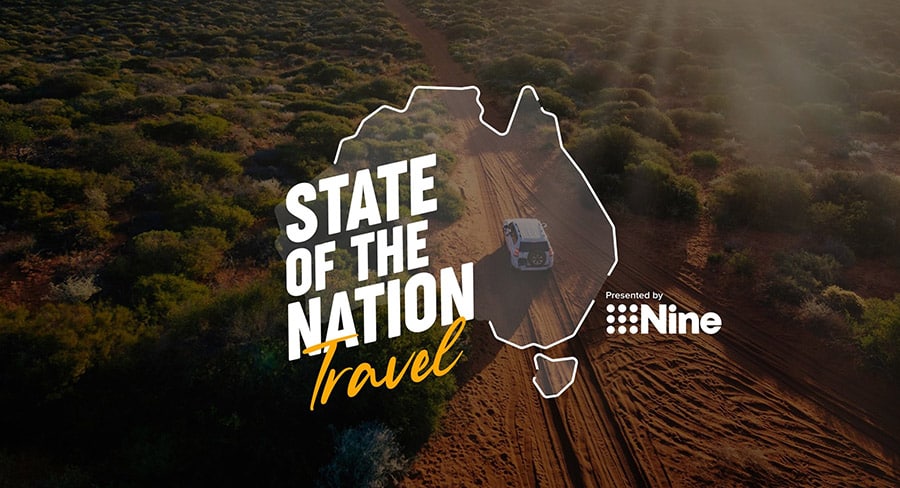The COVID-19 pandemic has affected almost every industry in some way, but the travel and tourism industries have been some of the hardest hit. However, new research – released today at Nine’s State of the Nation travel event – shows that just because international travel is off the table doesn’t mean that Australians are giving up on getting out and about.
State of the Nation was held at the Sydney Opera House, and revealed research that shows robust purchasing intent, particularly for domestic travel, with around two-thirds of respondents considering interstate travel and around half actively looking at travel within their own state.
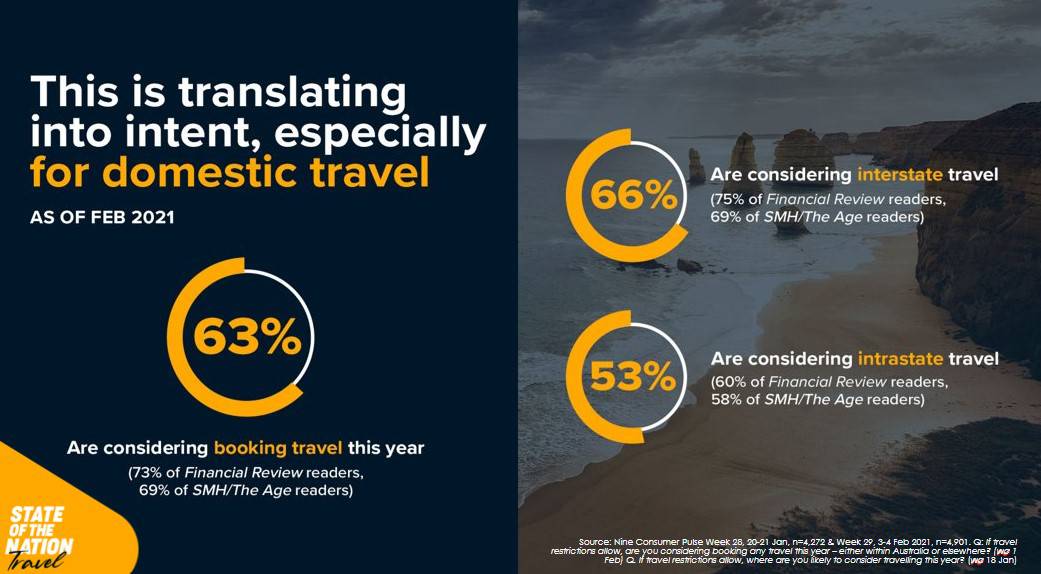
“This research clearly shows the appetite for travel among Nine’s audiences is absolutely there,” said Michael Stephenson, Nine’s chief sales officer. “There is an opportunity from travel brands to tap into an openness, optimism and desire to travel, but it will require travel marketers to recognise that consumers now have a different set of needs that have to be addressed in order to convert intent into action.
“Many in the travel industry have already put in place key changes to booking policies and protocols to protect travellers and provide reassurance. Our research provides further reassurance to the sector of the opportunity before it.”
The research highlighted how there are two key barriers that travel brands must first address if they want people to get travelling again: fear and uncertainty. These concerns could best be managed by addressing the community’s need for a feeling of safety and clarity around travel, and by clearly explaining to travellers what would happen if their trip had to be cancelled.
People are also being more pragmatic about their travel, with the report showing that more than half of respondents are currently comfortable with short flights, while 87 per cent are comfortable with travelling by private car. This opens up huge opportunities for local/short-haul weekend-stay providers, in particular.
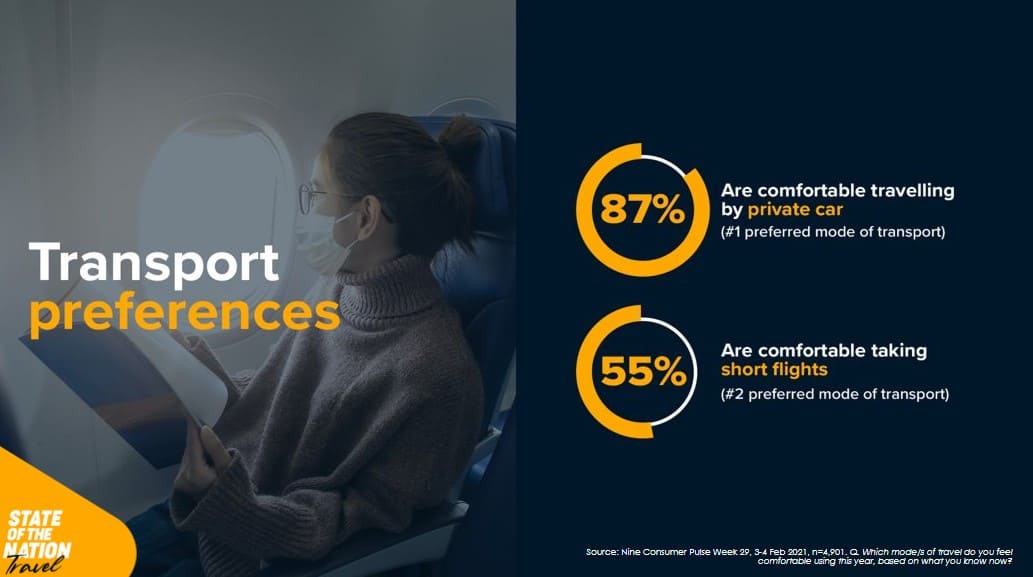
The research also highlighted that as people continue to navigate through uncertainty, they are becoming more flexible and open around their travel plans, while still ensuring they put aside money for travel.
Kirsty Macmillan, national director of Kantar, said: “What is interesting about this research is evidence of resultant travel behaviour change from situational factors. As consumers continue to adapt, remaining agile, building trust and helping consumers resolve tensions is key for brands.”
The research also gives an insight into consumer spending expectations, with around 22 per cent of respondents planning to “spend more than usual” on travel within Australia while 38 per cent would spend their normal travel budget on “more short/frequent trips within Australia”, highlighting the opportunity for conversion among domestic travel brands.
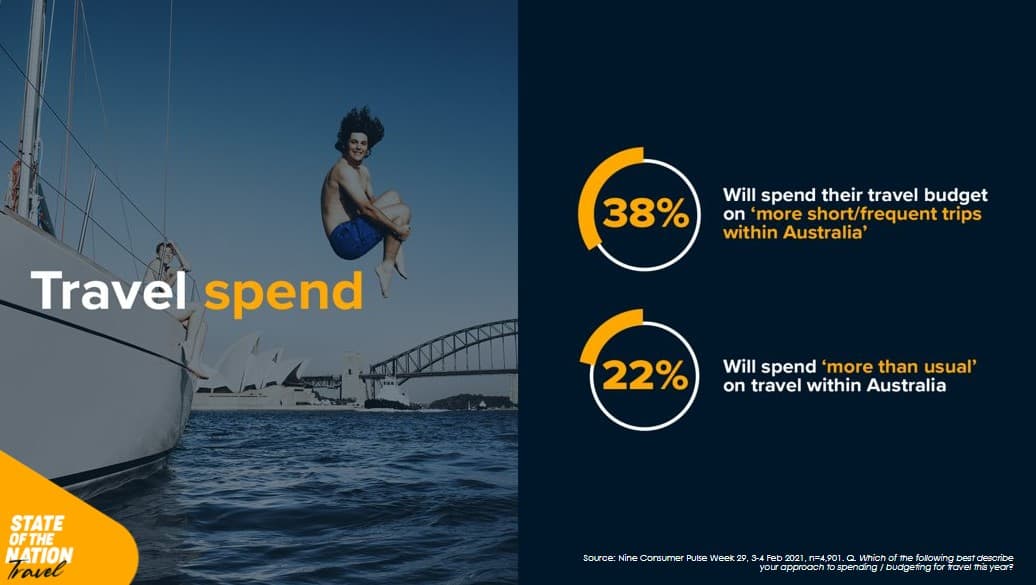
“The ‘new normal’ might have become a bit of a cliché,” said Stephenson, “But it’s a real thing when it comes to travel. Consumers understand and accept that there are new things to consider when planning a trip, and in return they are looking for flexibility and adaptiveness on the part of brands. Providing this will be key to conversion as the travel industry returns to growth.”
Stephenson also noted that Nine was uniquely positioned to help travel marketers stimulate demand as the industry moves into this recovery phase. As part of the State of the Nation travel event, he announced that the company was making a number of key initiatives to help the industry grow and reach consumers looking to travel.
These initiatives include the launch of nine newly designated Travel tribes, part of Nine’s 9Tribes data product – segments created specifically to help travel marketers target audiences across Nine’s network of assets, with an emphasis on domestic travel. This includes segments like “fly and relax travellers” and “wine region explorers”.
“At Nine we are committed to helping the travel sector as it looks to find new growth opportunities,” said Stephenson. “We know we are an important partner as brands tap into the underlying desire of Aussies to adventure and see this great country.”
